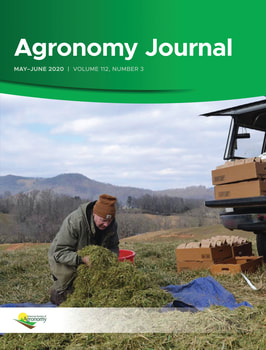 Compost Tea Induces Growth and Resistance against Rhizoctonia solani and Phytophthora capsica in Pepper April 2021 Link Here Need a reason to be more amazed with compost tea? Faculty at the University of Salamanca in Spain have been studying the effects of compost tea on pepper crops, especially their resistance to Rhizoctonia solani and Phytophthora capsica, pathogens common in pepper crops. Ten different treatments were set up to test how various factors in combination with the compost tea affected the pepper plants’ growth and pathogenic responses. The compost tea solution that this team worked with was based off composted green waste, which is basically recycled remnants of yard trimmings and other organic sources. They analyzed multiple samples of the compost tea for its nutritional and microbial composition, as well as some other chemical properties. The researchers first performed in vitro assays, which are tests that specifically target disease and are done on isolated systems. This is helpful in identifying factors and their effects on specific characteristics. The researchers also performed in vivo assays, which are tests on entire plant systems. This is more beneficial in discovering real-world implications. The researchers grew one set of pepper plants with no compost tea or pathogen introduction and another set of plants with compost tea but no pathogen introduction. They also grew plants with and without compost tea and with each pathogen introduced after transplanting. Their set up would allow them to observe how the compost tea affects plants diseased with these pathogens. At the end of the experiment, the researchers concluded that the compost tea successfully reduced pathogenic growth and increased plant growth, even when pathogens were introduced to the system at different times. Based on their analysis of the composition of their compost tea and based on others’ research, they decided that the compost tea most likely improves these characteristics because of the nutritional value and microbial makeup of the compost tea. Their solution contained multiple microbes known to help plants fight off these pathogens. Additionally, nutrients measured in the solution, especially nitrogen and potassium, were sources of fertilization for the growth and resistance of the crops. Their in vitro assays showed similar results of pathogen growth in the presence of the compost tea, and therefore the microbes that exist within it. Overall, this experiment shows the potential for compost tea in pathogen resistance as well as plant growth and yield. It highlights the importance of microbial activity in plant life and in agricultural systems. The researchers did say that their compost tea was not a complete source of nutrients for the peppers, so it would be interesting to see how additional fertilizer sources would impact these findings. Just another reason to research organic systems and to use compost tea! R&D Piece Authored by: Maya Shydlowski
0 Comments
Your comment will be posted after it is approved.
Leave a Reply. |
Archives
June 2024
Categories
All
|
Contact Us
Why TeaLAB?TeaLAB is committed to helping people and their gardens to become more self- sufficient, healthier, and productive. Grow your sweetest corn, your biggest watermelon, your tallest quinoa, your tastiest tomato, and your happiest you.
TeaLAB was founded to teach people how to garden organically, so that we can become more closely connected with the land. Our goal has been to simplify growing methods so that gardeners have a positive experience in the garden. TeaLAB is where the garden meets the laboratory. From around the world and into your backyard, our products contain ingredients that are sourced both locally and globally. Using methods both ancient and cutting edge, TeaLAB promotes maximum biology. Grow with TeaLAB. |

 RSS Feed
RSS Feed
